Machado Family Farms: Where Farming + Fitness Meet
What do walnuts and CrossFit have in common? We visited Machado Family Farms to learn how Drew Cheney and Melissa Machado Cheney integrate farming and fitness.
Drew Cheney and Melissa Machado Cheney didn’t plan on being farmers. Melissa’s background was in nutrition and fitness, and Drew had worked in public relations. When they took over her family’s fourth-generation farming operation outside of Lodi, the couple found a unique way to tie it all together – “CropFit”. This might be the first time you’ve heard of CropFit, but we have a feeling it won’t be the last.
“Would you ever consider farming?”
This isn’t one of those stories when a small town girl imagines herself moving to a big city. Melissa grew up on her family’s Linden farm, but she never envisioned herself as a farmer. It was actually quite the opposite. Her dream was to build a house on the property, and Melissa simply didn’t think the realities of being a farmer, or a farmer’s wife, meshed with her vision for her future. She explains, “Ever since I was a little girl, I always swore to myself, I would never marry a farmer,” she recalls, shaking her head with a wry smile. “We’re the fourth generation. My great-grandfather migrated here from the Azores in the early 1900s, purchasing a very small plot of land less than two miles away, which we call our home ranch. He started with dairy, grazing sheep and row crops.”
Melissa continues her story, explaining that her father and uncle managed the farm alongside her grandfather. When her grandfather’s health declined the family faced a succession crisis. Melissa’s brother had been expected to take on the family’s farming operation but sadly, he passed in a tragic farming accident. Melissa remembers, “When my grandfather’s health started taking a nosedive, that’s when reality hit for my father and my uncle – no one wants this. Nobody even wants a piece of this land. So, he approached Drew and asked, ‘Would you ever consider farming?’”
Drew, who grew up in rural northern California, had always assumed he’d work in agriculture – just not necessarily as a farmer. He studied communications at Davis and worked as a liaison between agricultural communities and the Public Utilities Commission. Drew states, “When her dad asked me that, I didn’t want to let something fail on the level of a principle. They had four generations of blood, sweat, and tears and just to, just to let that die? I just thought, I can’t let that happen on my watch. I’ll try my best. I’m not saying that it’s gonna succeed, but I have to at least say that I tried.”
How they learned the ropes
While both Melissa and Drew grew up around agriculture, neither had been directly involved in the day-to-day operations of running a farm. This gave them a unique opportunity to approach the job with fresh eyes. Drew laughs, “The learning curve was basically just jumping in and listening and watching. I work with four brothers from Mexico who have been on the farm for decades. It was basically just institutional knowledge developed on the farm for decades.”
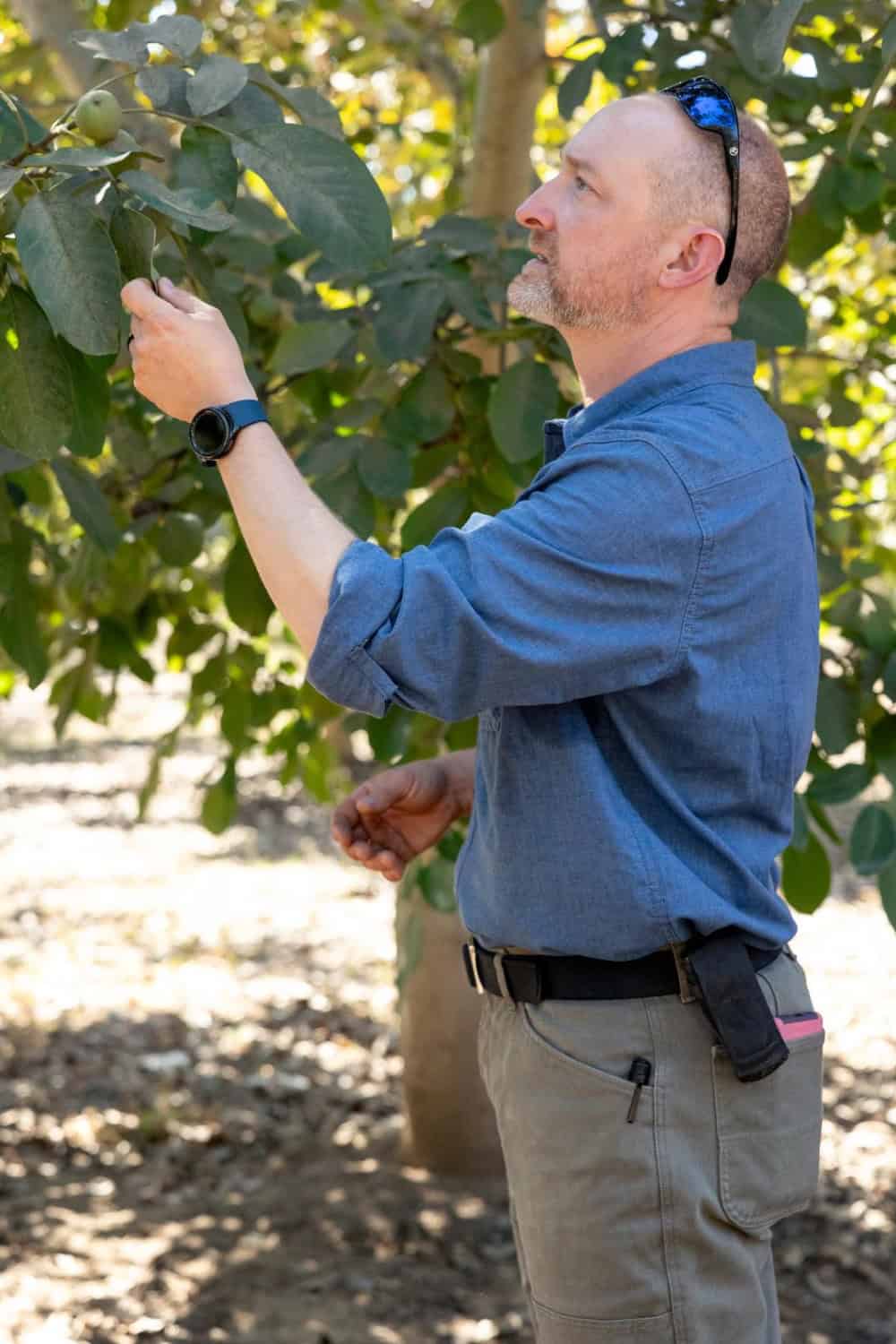
Melissa’s father had transitioned the farm from row crops to permanent crops – specifically walnuts – following the recommendations of researchers at UC Davis. Drew adds, “Her dad really needs to be given credit. A permanent crop has a little more protection from market volatility. A lot of people wouldn’t utilize the early research and efforts done by UC Davis. Here in Linden, the type of soil that we have is really, really good for walnuts and cherries – we literally grow the best walnuts in the state of California right here just because of the soil type that we have here.”
Healthier soils, food and families. Insane? Nope – just plain nuts.
Like Melissa’s father, Drew and Melissa relied on solid scientific research to guide their next steps – spending their evenings reading research papers and discussing ag documentaries over a bottle of Lodi wine. “We both went to UC Davis, so I would say science and research are really key for us. We’re trying to find ways to do more with less, not just from a financial standpoint, but also just for the whole health of the farm.”
From the start, Drew and Melissa have viewed their job as farmers as a means to create healthier families. To that end, they’ve incorporated many sustainable and regenerative practices in their orchards. Drew explains, “For us, sustainable means you’re protecting the environment, your community, and the livelihood of your employees. You don’t have to jump in feet first and completely change the way you farm. Just add little things that will fit in with your current practices and make small changes – you’ll be surprised at how quickly those make a difference.”
They started by focusing on soil health. Initially, “A lot of people thought we were insane,” Drew laughs as he talks about incorporating a robust mix of cover crops and the raised eyebrows around town when he brought in a flock of sheep.
Are environmentally sustainable choices economically sustainable?
Now, four years in, Drew and Melissa tout the environmental and economic benefits. They firmly believe that embracing sustainable and regenerative practices has helped cut farm expenses.
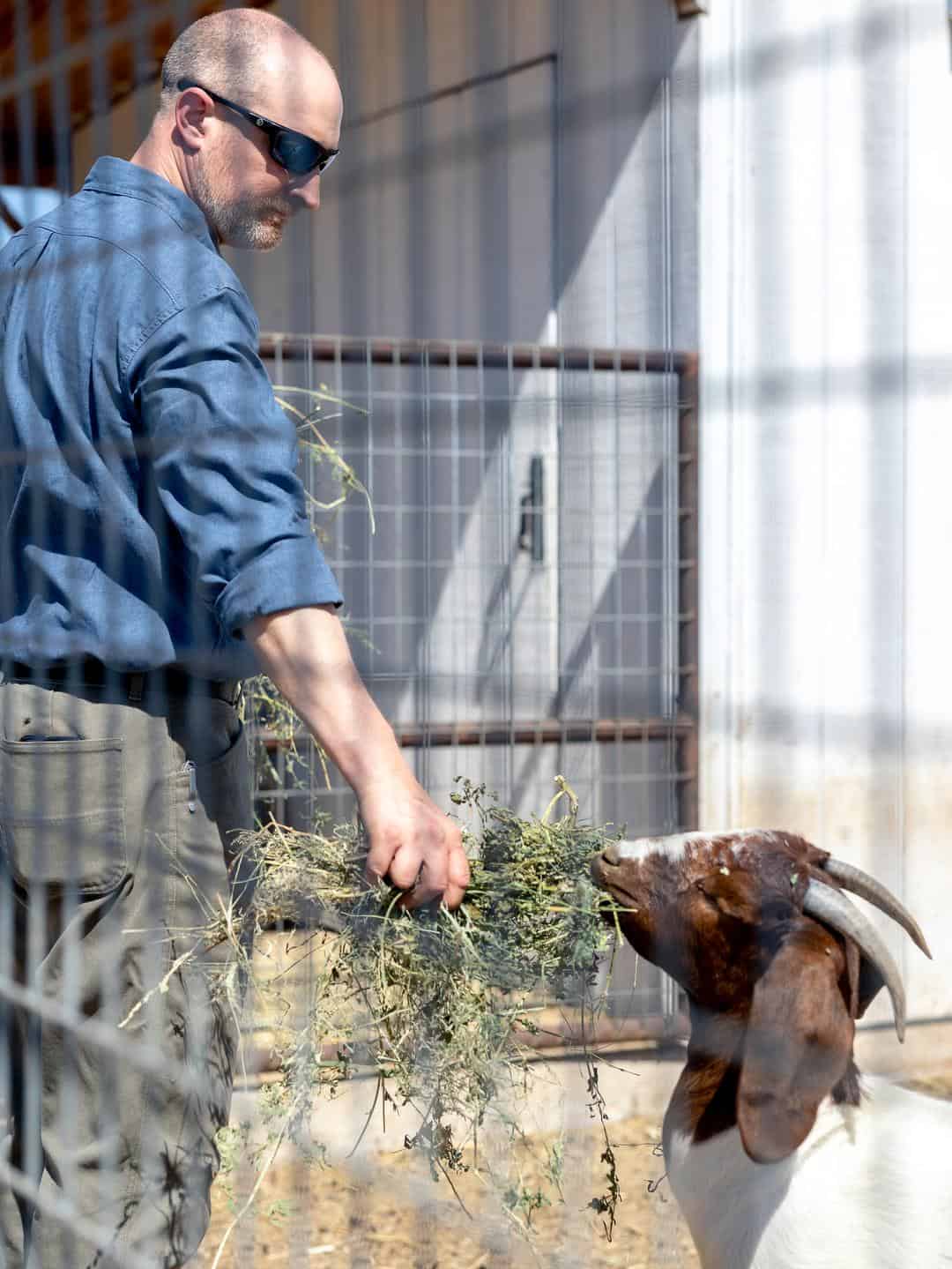
Drew proudly states, “For two years in a row now, I’ve never had to spray for leaf rollers. I have more beneficial insects. I have cover crop on the ground for longer, and the sheep are taking that biomass and reincorporating that back into the soil. We’ve reduced chemical cost, reduced diesel cost, mowing cost, labor…I could just keep going on.” Then Melissa adds, “The financial impact has been huge. We primarily farm walnuts, and we all know that walnut prices are horrible. Putting in these practices to offset that drop in the cost has allowed us to keep farming – to keep our trees and not pull them out like a lot of growers in our area are doing right now.”
Tying it all together: CropFit
Machado Family Farms joins farming + fitness together to promote healthier families and communities. Before taking over the family farm, Melissa worked as a CrossFit instructor and nutrition coach. After moving back home to Linden with Drew, Melissa was excited to continue this pursuit in her hometown. She smiles, “When we moved back here, the first thing we built on our property was a gym because there’s nothing out here. You’d have to drive 30 minutes to Lodi or 30 minutes to Stockton to go to your nearest gym or any kind of yoga studio. We wanted to bring fitness to the farm.” And so, CropFit was born.
Even Drew has joined in, coaching “CropFit” classes for farmers at night. Farming, Drew explains, is a physically demanding job and staying fit can help reduce fatigue and the risk of injuries. He adds, “We wanted to have a gym that shows people you can have a balanced lifestyle. You can still work your tail off, but you can do it safely and take care of yourself.”
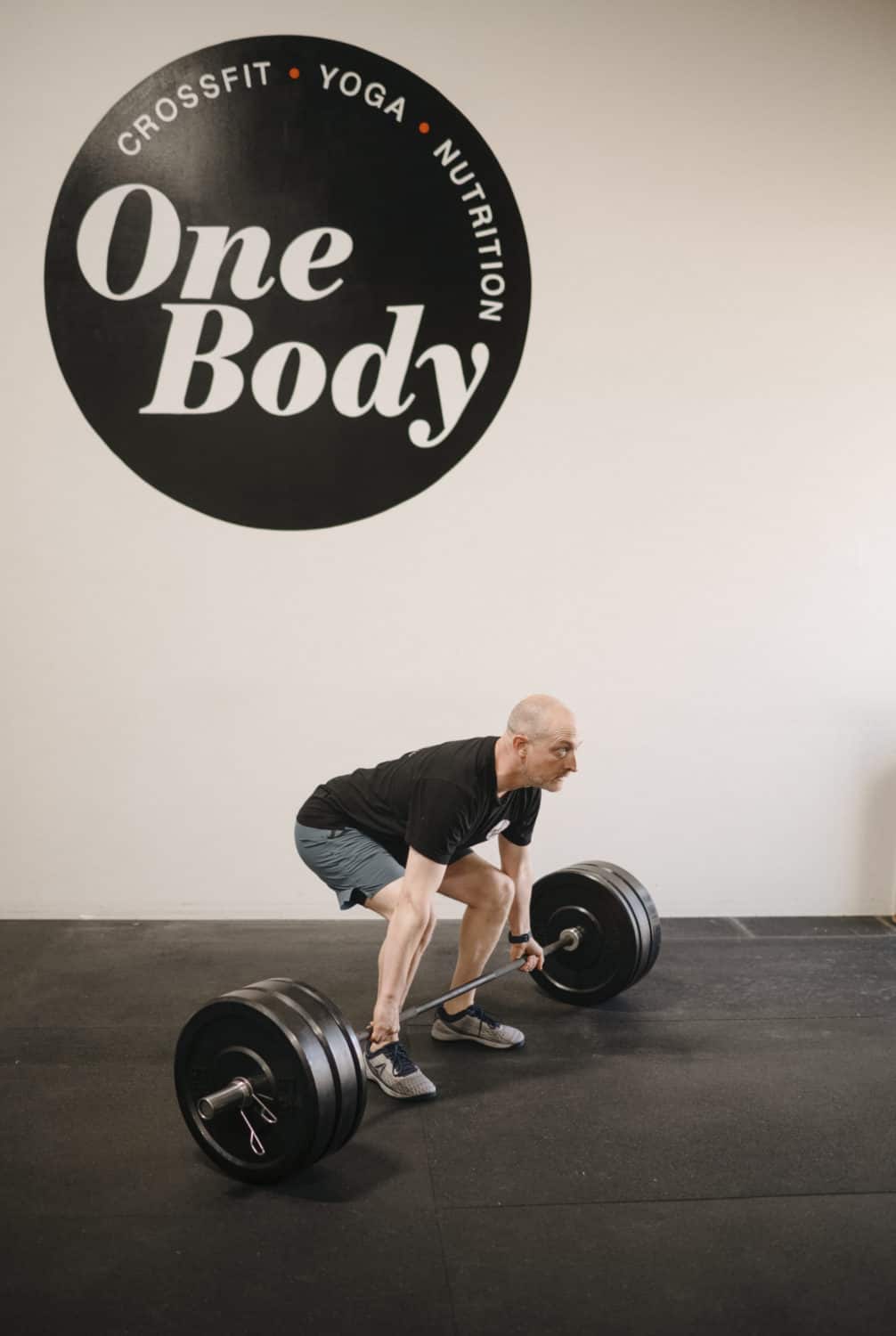

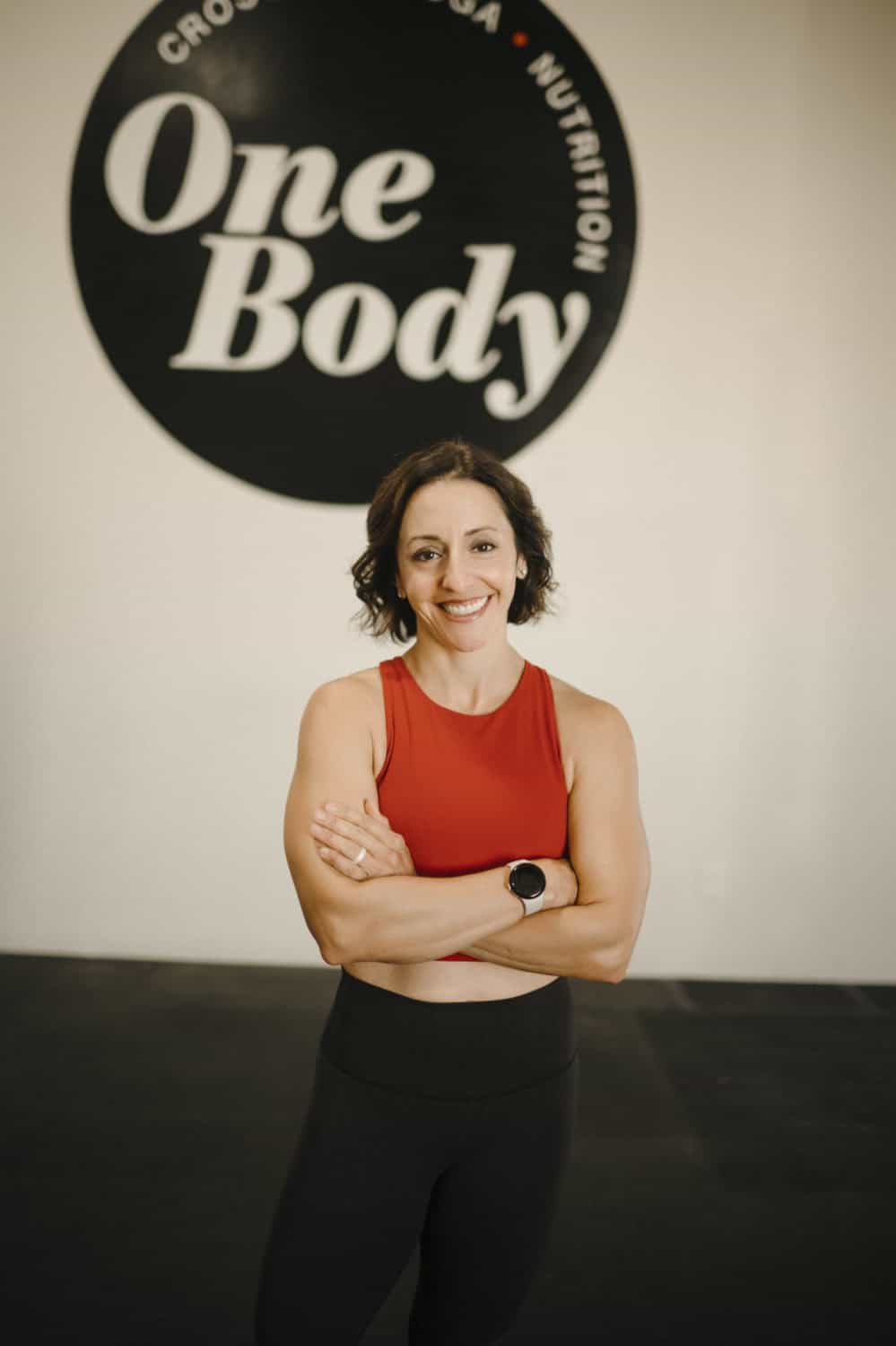
How do farming and fitness fit together?
Melissa and Drew use their gym, One Body, to help educate their community about the importance of fitness, eating seasonally and supporting local farmers. Melissa frequently promotes local farms and CSA boxes on the gym’s instagram account, @onebodymelissa. Looking forward, Melissa has plans to host workshops and wellness retreats, focusing on fitness and nutrition. Many of the recipes Melissa plans to share will feature the walnuts grown on their farm and commodities grown by other local farmers.
The gym has also served as an additional, albeit untraditional, revenue stream. “We look at Machado Family Farms as an umbrella, and we have the gym as a resource that falls underneath it – another revenue stream to sustain our farm that most growers have never looked at before.”
Teaching kids where their food comes from
Melissa and Drew’s commitment to educating their community doesn’t stop at One Body gym. They’re now committed to building the minds of kids through ag education. They both participate in 4-H and partner with local elementary schools, hosting field trips to teach kids about where food comes from and how it’s grown. “We just hosted our first field trip. We led them through the science behind the walnuts, soil health and predicting harvest. Then, in four weeks, the students will come back to see the harvesting process. Then they’ll go to our huller and see how the walnuts are, you know, washed and dried. We’re also hosting another field trip for schools in the spring for our U-pick cherries. Not just coming in and picking them, but actually learning and exposing them to ag.”
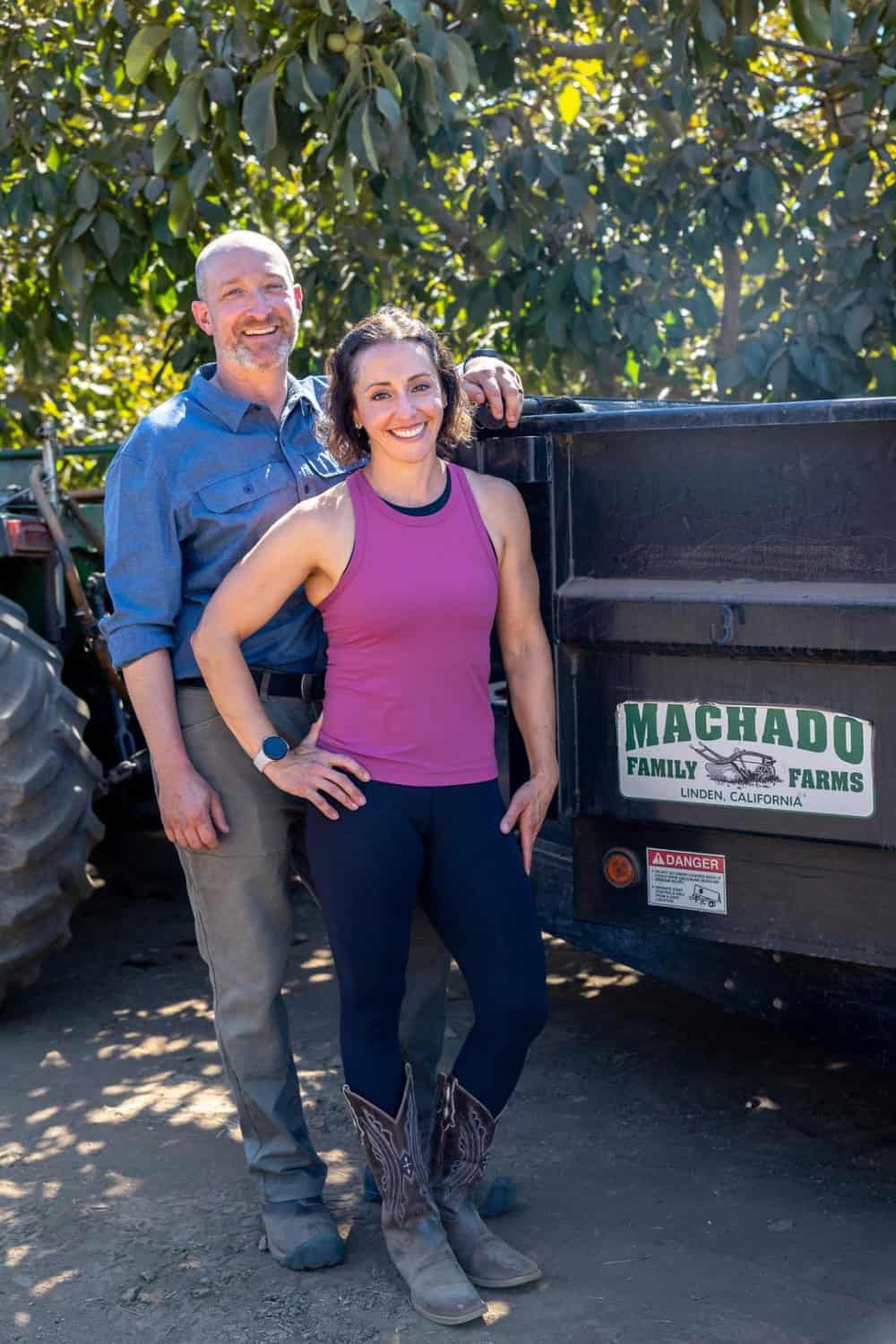
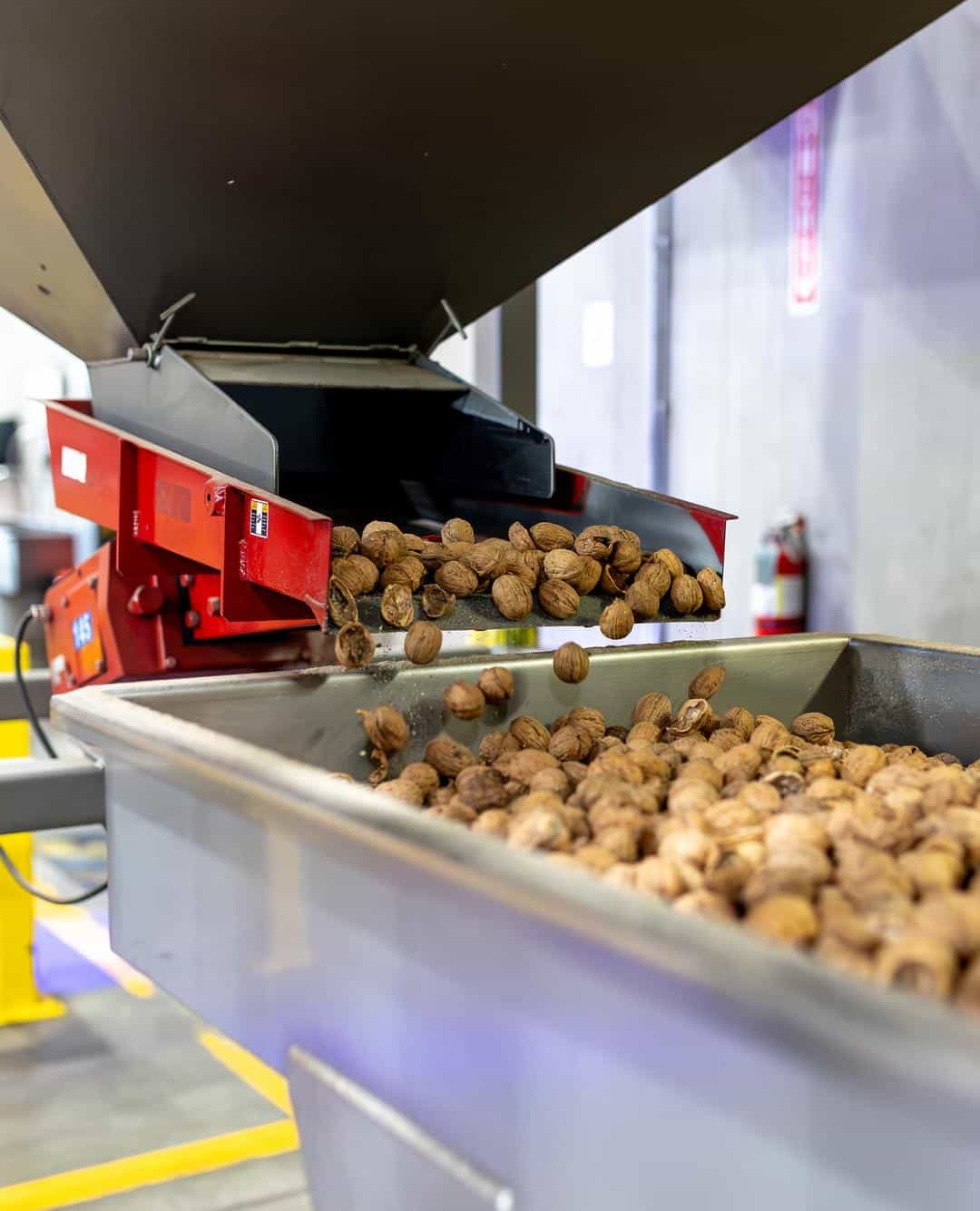
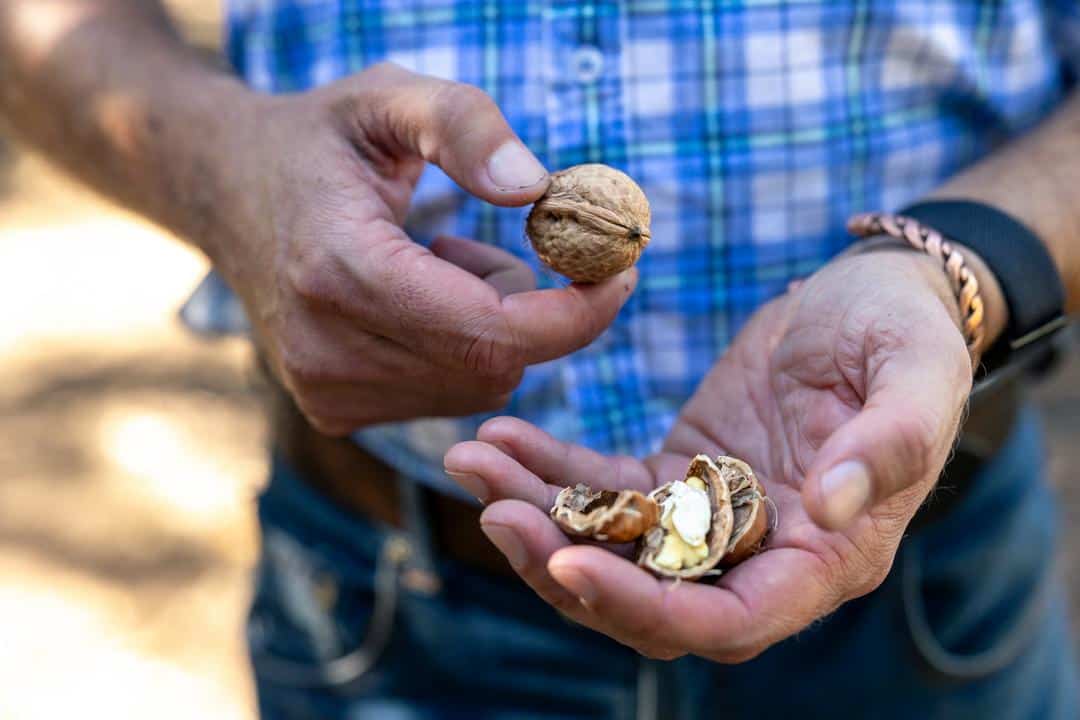
Keep an eye on Machado Family Farms Instagram page for information about upcoming events!
Coming full circle: “It just fits”
Although Melissa never dreamt she’d be a farmer’s wife, she’s found purpose and fulfillment through nurturing, training and educating her community. “When you put things out in the universe and they come back to you, I think it’s interesting. I didn’t wanna marry a farmer, but I wanted to build a house here. And now, it’s come full circle and it just feels right. We are where we are supposed to be, on the land and on the farm.” Drew agrees, “It just fits. This is where we need to be.”
Ready to visit Lodi?
There’s so much to do in Lodi! From shopping for the freshest produce at local farmsteads to wine tasting or even taking a class at One Body gym – there’s something for everyone in this charming little farm town! Here’s why Lodi is our favorite agritourism destination!

Article and photography by Hilary Rance. One Body Gym pics courtesy of @emilyshoresphotography.

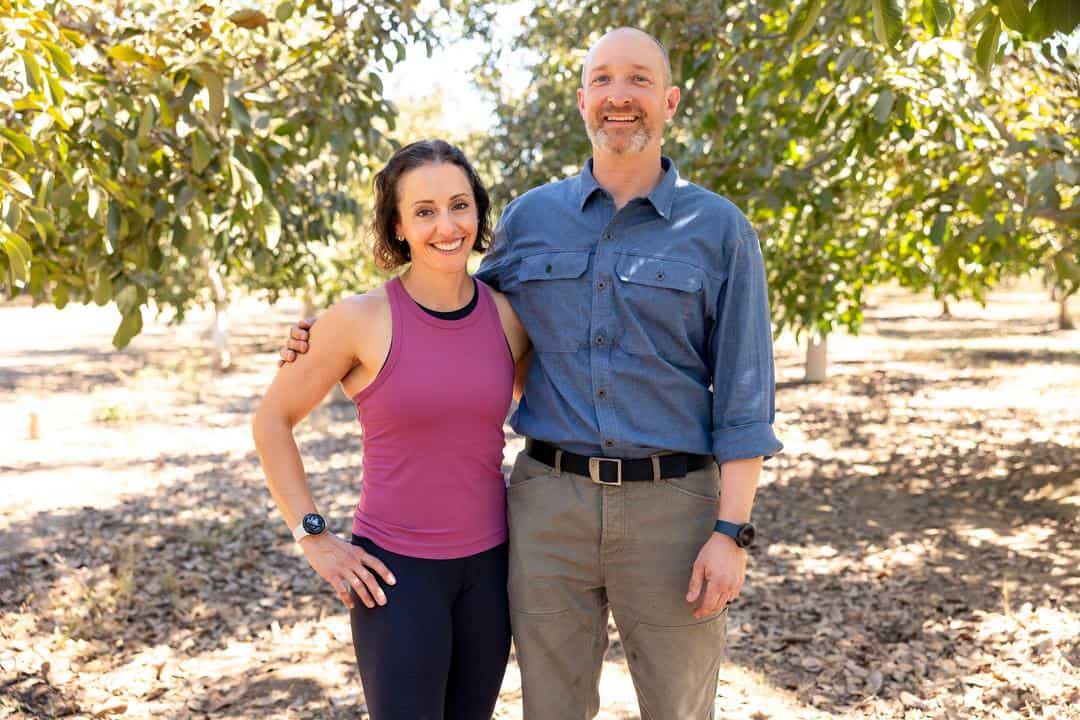
I will be out in the San Francisco area mid February. Would there be a chance I could stop by and see your farm?
I have such great memories of eating almonds with my dad while we were making fudge. He was famous for making fudge with really nice walnut pieces.
I also encourage my family to eat a variety of nuts every week. I think it’s a great health and wellness position.
Thank you for bringing the walnuts to us consumers.
Sincerely,
Charlie
Hi Charlie,
What great memories! We aren’t actually affiliated with Machado Family Farms we just interviewed them for this article. You will need to reach out to them directly to see if you can schedule a visit.